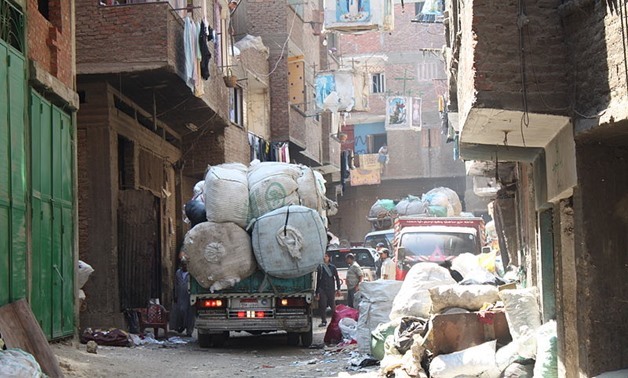
A garbage truck driving through the Streets of Manshiyat Nasser, Mokattam, Cairo - Courtesy to Wikimedia Commons
CAIRO –21 May 2018: Shehata al-Moqadis, head of the Garbage Collectors union, inked a memorandum of understanding (MoU) with an Italian company to build a waste recycling plant.
“The new project aims at running a waste-to-energy plant with a capacity of 600-1100 tons per day that can be used to generate electricity or to produce gas,” Moqadis said in press remarks on Saturday.
He further called on the government to support the budding project by sponsoring the purchase of the produced electricity so that it can be applied into different sectors, which will ensure the sustainability of the project.
The project presents plenty of opportunities for the government and municipalities to get rid of solid food leftovers, he added. “Large amounts of electricity will expectedly be extracted akin to the same amount that is generated from the high dam in Aswan.”
The Italian side shall be committed to undertake technical studies meant for the station, and the financial studies needed to obtain the loan floated to the company for the construction of the waste-to-energy plant.
It also will be entrusted with supervising the construction works and providing in-site workers with job trainings.
Use of organic waste for gas production:
The project also aims at segregating solid, organic waste such as plastic and aluminum that can be converted into biogas to be used in different sectors and to be processed to produce electricity according to the amount of organic waste available.
The organic waste that can be processed in the plant shall constitute 65 percent of the total waste directed to the recycling plants.
If the plant is operating at a capacity of 600 tons per day, the potential production will be 11, 2500 MW per hour.
If the plant operates at a capacity of 1100 garbage tons per day, the potential will be 187500 MW per hour.
Egypt has a festering waste management problem, with more than 80 million tons of garbage being disposed every year, according to Egypt’s Environment Minister Khaled Fahmy.

Comments
Leave a Comment